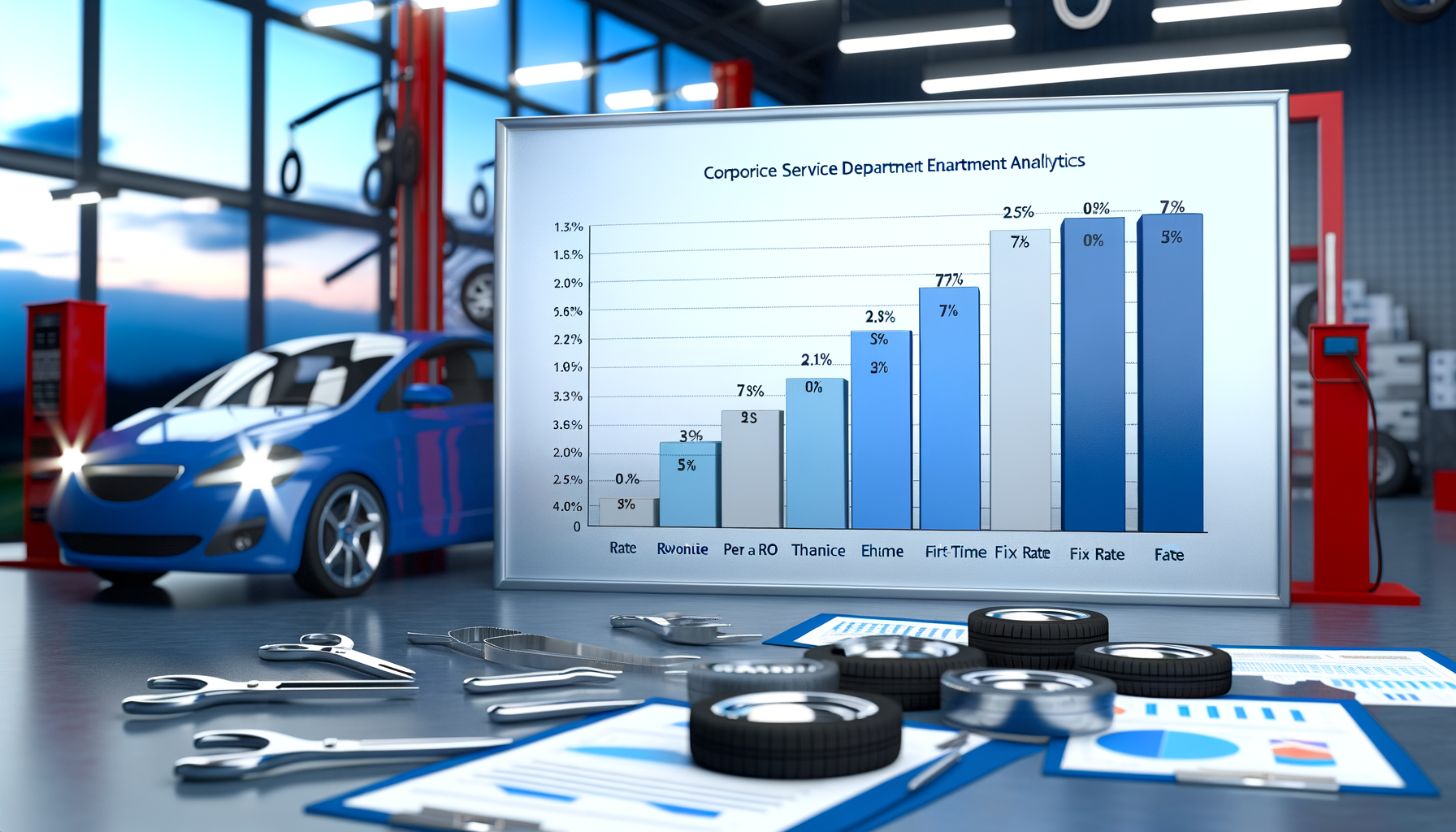Mastering Service Department Analytics: The Complete Playbook for 2025

Understanding the Importance of Service Department Analytics

In 2025, the automotive service industry is undergoing significant transformation driven by data analytics. With the rise of electric vehicles and connected car technologies, service departments must adapt to new repair trends and customer demands.
A recent industry study reveals a 15% increase in EV-related repairs, underscoring the need for departments to understand and anticipate these service requirements. Analytics provides a roadmap for this adaptation, turning data into actionable insights.
To leverage these insights, service managers should focus on real-time data capture and analysis, enabling them to optimize workflows, improve customer satisfaction, and boost profitability. Implementing robust analytics systems ensures departments stay ahead of industry changes.
Key Analytics Metrics for Service Departments

Metrics are the backbone of any analytical approach, dictating the success of service operations. Key performance indicators such as Service Absorption Rate, Revenue per RO (Repair Order), and First-Time Fix Rate provide a comprehensive view of departmental efficiency.
For instance, maintaining a high First-Time Fix Rate improves customer satisfaction and loyalty, reducing the rate of repeat visits. A recent survey indicates 68% of customers are more likely to return if their car is fixed right the first time.
Tracking these metrics allows for pinpointing areas of improvement, setting realistic targets, and measuring the impact of implemented strategies. With the right tools, such as Auto Pro Solutions, these metrics can be seamlessly integrated into daily operations.
Implementing Predictive Maintenance Analytics

Predictive maintenance is revolutionizing how service departments approach vehicle care. By analyzing historical data and current vehicle conditions, departments can predict potential failures before they occur.
Leveraging machine learning algorithms and IoT devices, predictive maintenance allows for scheduled interventions that minimize downtime and improve vehicle uptime. This approach is particularly beneficial for fleets, where reliability is critical.
Service managers can implement these systems by integrating data sources such as telematics and historical repair records, using platforms like Auto Pro Solutions to streamline data management and analysis.
Tools and Technologies Enhancing Analytics

Choosing the right tools is crucial for effective service department analytics. The toolkit should include platforms that integrate seamlessly with existing dealership systems, like CRMs and DMSs.
Technologies such as AI-driven analytics platforms, cloud-based data storage, and advanced reporting tools provide the flexibility and scalability needed to handle large datasets and complex analytics tasks.
Platforms like Auto Pro Solutions offer comprehensive analytics modules designed specifically for automotive service departments, ensuring precise data collection and insightful reporting.
Overcoming Common Analytics Challenges

Despite its potential, analytics comes with challenges such as data silos, integration issues, and resistance to change. Successfully overcoming these barriers is key to a data-driven transformation.
A common issue is disparate data sources that hinder comprehensive analysis. Solutions include adopting integrated platforms that consolidate data across all systems.
Addressing staff resistance requires clear communication of analytics benefits and providing adequate training. Foster a culture of data-driven decision-making by setting examples from leadership.
Case Studies: Analytics in Action

Consider a mid-sized dealership that leveraged analytics to improve its Service Absorption Rate from 75% to 90% in just one year. By focusing on data-driven insights, they optimized labor utilization and parts inventory management.
Another success story involves a large metropolitan dealership that adopted predictive maintenance to reduce unscheduled downtime by 30%, increasing customer satisfaction and loyalty.
These case studies illustrate how strategic analytics implementation can yield significant business benefits, positioning service departments as key profit centers within dealerships.
Best Practices for Data-Driven Decision Making

Effective data-driven decision-making requires a strong foundational culture that values analytics insights. Begin by clearly defining organizational goals and aligning analytics efforts to these objectives.
Regularly review and update data strategies to adapt to changing industry dynamics, ensuring that analytics remain relevant and actionable.
Promote transparency and communication across departments to facilitate collaboration and buy-in, using data storytelling to make insights accessible and impactful.
Related Topics
Ready to take your service department to the next level?
Schedule your demo today and experience the power of Auto Pro Solutions.
Schedule Demo